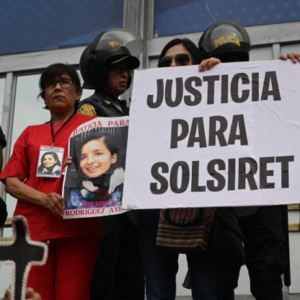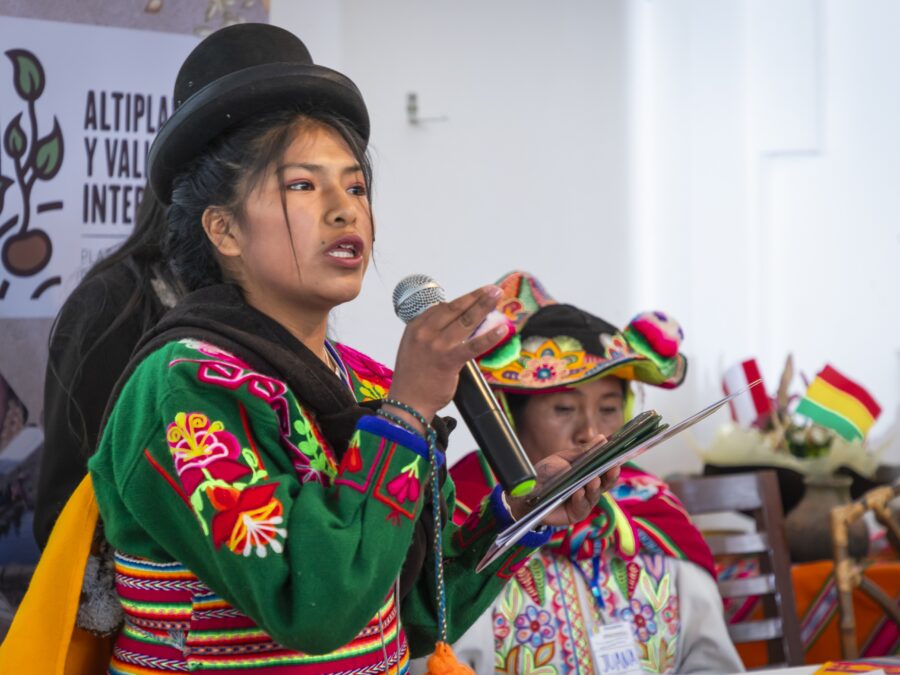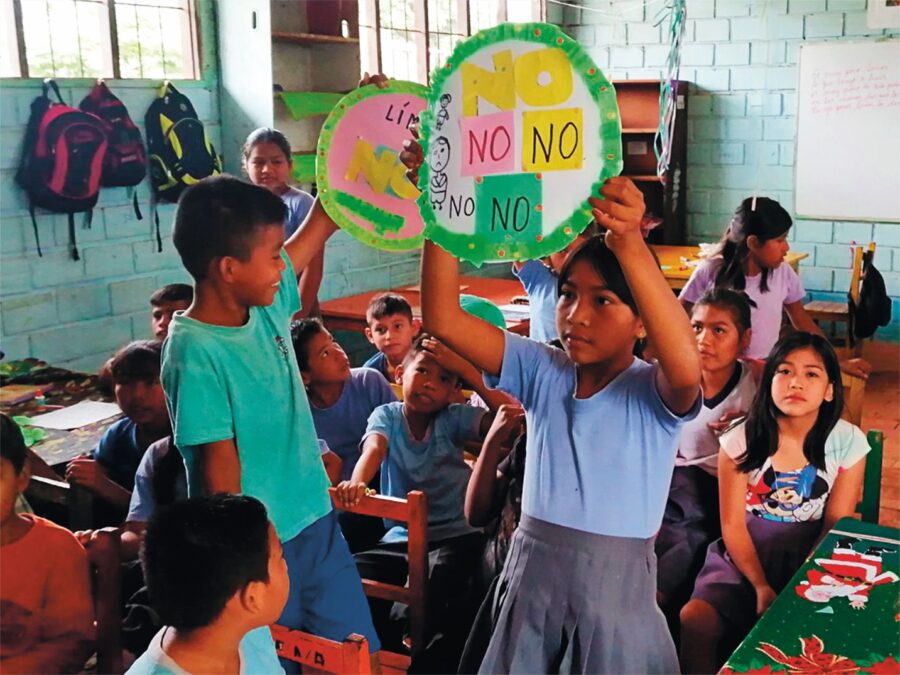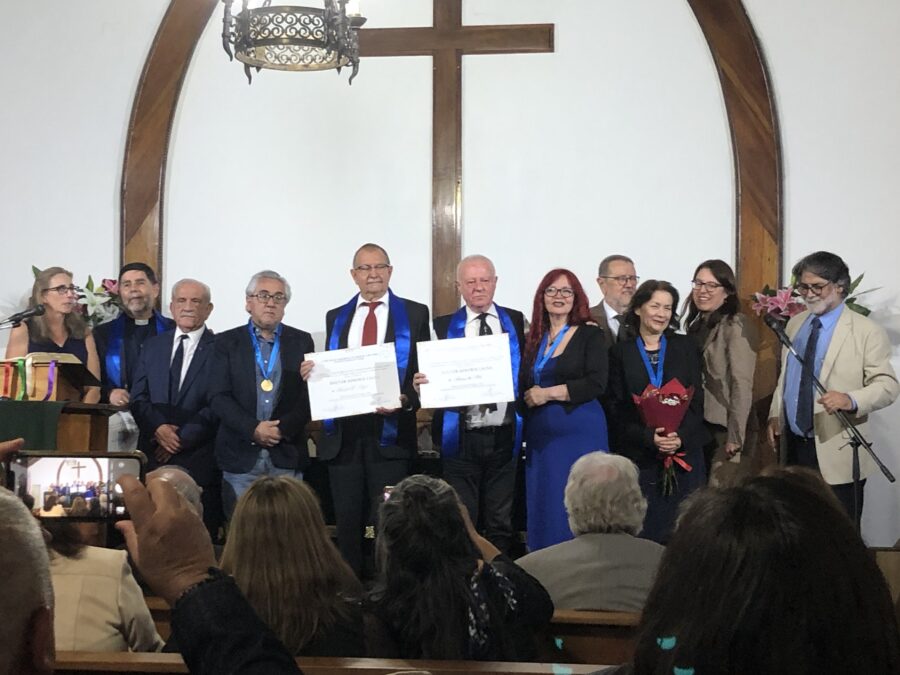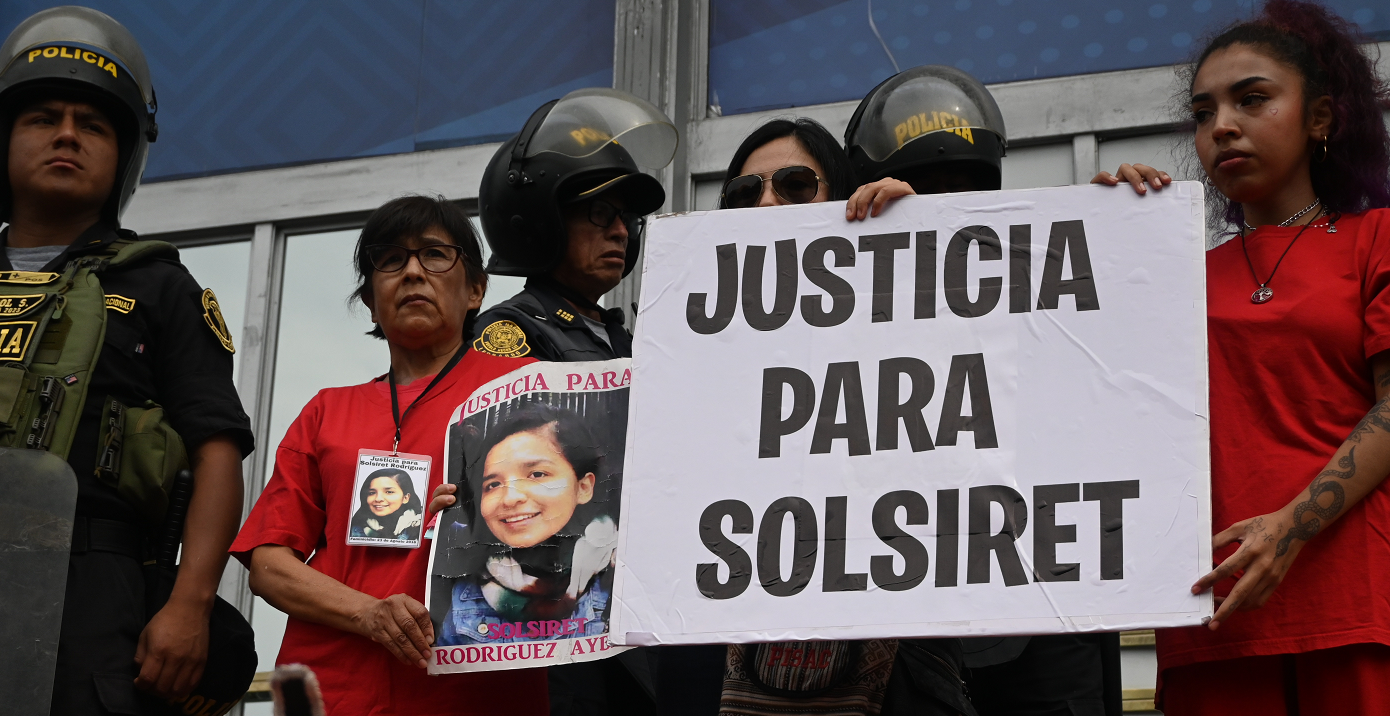
Latin America, Latin America
Strong civil society for sustainable development in Latin America
Project Number: 400.1400
The partner organizations are strengthened through targeted training so that they become actors that work transparently, efficiently and responsibly. In this way, Mission 21 promotes their influence as opinion leaders in civil society and creates strong institutions and leaders that can bring about sustainable change. The focus is on workshops on the topic of "artivism", for example: this approach uses the combination of art and social action in public spaces as a means of drawing attention to the environmental crisis or the undermining of political rights in a creative and peaceful way
Background information
Reports on the rule of law by the World Justice Project in Latin American and Caribbean countries show authoritarian tendencies and widespread mistrust. The majority of people in Latin America and the Caribbean believe that their government uses disinformation to influence public opinion in their favor. At the same time, new surveys on authoritarianism and democracy show a widespread conviction that leading government representatives are trying to attack and weaken important control mechanisms of the executive.
In the Andean region (Bolivia, Colombia, Ecuador and Peru), between 50-75 % of people believe that government officials exhibit authoritarian behavior. Compared to the last year of data collection, more people believe that local government officials are not elected through a clean process. Furthermore, less than a third of respondents in Andean countries believe that high-level officials would be held accountable for breaking the law. In such an environment, solid partner organizations are needed that can still effectively advocate for people whose livelihoods are threatened by climate change and lack of water protection, have limited access to formal education or are affected by gender-based violence in an increasingly authoritarian environment.
Project goals
The aim of this project is to strengthen Mission 21's partner organizations so that they can work transparently, effectively and sustainably in civil society. The aim is for the partner organizations to exert an even more targeted influence on political decision-makers and develop effective measures to shape public opinion.
Target group
Project managers and employees in Mission 21's partner organizations.
Activities
We promote the exchange of knowledge among partner organizations and facilitate training on innovative methods for political lobbying and awareness-raising work. The most important activities include
- Artivism" workshops: This approach uses the combination of art and social action in public spaces as a means of drawing attention to the environmental crisis or the undermining of political rights in a creative and peaceful way.
- Knowledge exchange on strategies for dealing with gender-specific violence against indigenous women and legal advice.
- Exchange of knowledge on approaches to how men and boys can develop positive images of masculinity.
Project progress
In 2024, FMA supported an awareness campaign on the prevention of sexual and gender-based violence and an awareness campaign on the topic of femicide and the disappearance of Solsiret Rodriguez and Shirley Villanueva (CMP Flora Tristán).
FMA's awareness campaign involved 534 people in various activities carried out, including 218 people who visited the project's stand at trade fairs and 316 people who received information via the campaign's Facebook page.
CMP Flora Tristán was a constant point of contact for the media on issues of gender equality and violence against women. During the year, 55 interviews were conducted with media representatives. During the demonstration in front of the court of Callao (Peru), posters and materials were used to demand a just verdict for the feminicide of Solsiret Rodriguez. A video with Solsiret's mother's statement reached 152,000 people. Both partner organizations thus contributed to raising awareness for the elimination of violence against women and children.
For the first time, Mission 21 supported a binational meeting of young environmental activists and local and regional authorities from Bolivia and Peru on the environmental crisis in the Lake Titicaca catchment area. The fact that the regional authorities actively participated in the meeting in Copacabana shows that this measure has raised awareness of the environmental problems.
In addition, a partner workshop was held to prepare the 2025-2028 programme development strategy, which promoted an understanding of the importance of collective and coordinated action in political lobbying and awareness-raising work and will take shape from 2025 in the collective project Lake Titicaca in Need: Strategies for Climate Justice. (420.1021). As part of our training and measures for good governance, Mission 21 supported IDECA. The aim was to ensure organizational sustainability and transparent financial management. To this end, we advised IDECA externally on the development of its multi-year strategy and the introduction of new accounting software. The process also led to a better understanding between the board members and the operational team.
Partner
- AETE, Evangelical Theological Education Society
- ALFALIT in Peru
- CBC, Centro Bartolomé de las Casas from Cusco
- CEDEPAS, Ecumenical Center for Social Promotion and Action
- SASP, Andean Seminar San Pablo
- CMP, Centro de la Mujer Peruana Flora Tristán
- Emaús, Center for Spirituality
- IDECA, Institute for the Study of Andean Cultures
- FOCAPACI, Center for Education and Training for Citizen Participation.
- FMA, Machaqa Amawta Foundation
- PNS, Plataforma National de Suelos
- DEI, Ecumenical Research Department
- UBL, Latin American Bible University
Project images

Latin America
663 million inhabitants
27% are affected by poverty
39,1% affected by poverty in rural regions
(Source: CEPAL 2024)
Project budget 2025
CHF 50'000
